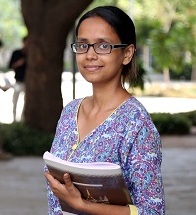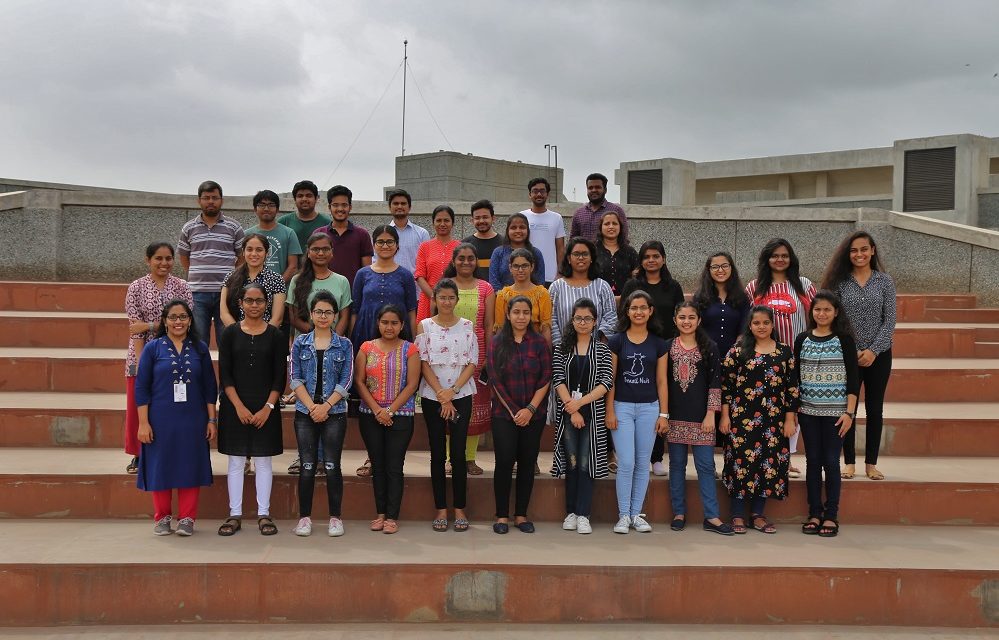“I think it’s very important to get more women into computing. My slogan is ‘computing is far too important to be left to men’”- Karen Spärck Jones, Professor of Computers and Information at Cambridge Computer Laboratory and introducer of the concept of inverse document frequency (IDF) used by most search engines today
The above quote says it all. Without women, computational technology as we know it now would not have existed- Ada Lovelace (inventor of scientific computing), Hady Lamarr (inventor of WIFI, Bluetooth and GPS), Top Secret Rosies (world’s first computer programmers), Grace Hopper (writer of the first compiler) and Dorothy Vaughan (one of the first programmers proficient in languages like FORTRAN) being a few successful examples.
Even though women have been the pioneers in countless fields of technology, it is still dominated by men. It is clearly visible in the case of computing as well where women are creating website-software, a variety of programming languages and contributing significantly towards burning topics of the present times like big-data and cloud computing, but still represent a far smaller percentage as compared to their male counterparts. According to a study highlighted by Forbes in 2019, India has a higher involvement of women in technology (35%) than the US (20%) and the UK (17%).
A recent report by Morgan Stanley, an American multinational investment bank and financial services company in New York City, states that women collaborating on teams and taking up leadership roles in technology can have a remarkable positive impact on businesses’ bottom-lines. All these facts and figures openly point towards the truth that there is a dire need to educate women from the very beginning of their lives in such a manner that they can confidently step-up to conquer various fields of automation. They need to be exposed to a type of learning that is fascinating and experiential, leading towards detailed conceptual cognizance with the intention to create scientific temper crucial for fueling their curiosity of re-inventing innovative technologies.

The ACM-W Summer School on Computational Social Choice
Working along these lines, the Indian Institute of Technology Gandhinagar recently collaborated with the Association for Computing Machinery’s Council on Women in Computing (ACM-W) to organize the ACM-India Summer School 2019 in algorithmic game theory for girls and women from educational institutes throughout the country. ACM-W globally supports, celebrates and advocates for the full engagement of females in the field of computing internationally, by means of a wide range of services. With 36,000+ members and 25+ events every year, it works to promote the contributions of technical women across the globe.
It offers an attractive bucket of scholarships to undergraduate and graduate women students in computer science and other related fields and has about 137 active chapters at schools around the world. Originally known as the Grace Hopper Celebration of Women in Computing, it was recognized by the US White House on their page “The Untold History of Women in Science and Technology”.
The school, which commenced from 2nd July 2019 and continued till 14th July 2019, witnessed participation from 35 girls who had come from across various colleges in the country. The school saw 50 hours of lectures by nine speakers, namely: Meghana Nasre (IIT Madras), Prajakta Nimbhorkar (CMI), Sushmita Gupta (NISER Bhubaneswar), Dinesh Garg (IBM), Siddharth Barman (IISc), Nidhi Rathi (IISc), Palash Dey (IIT Kharagpur) and Neeldhara Misra (IIT Gandhinagar), apart from several tutorials supported by Chinmay Sonar (MTech scholar, IIT Gandhinagar) and Suman Banerjee (PhD scholar, IIT Kharagpur). The school focused on topics in computational social choice, covering traditional topics and recent advances alike. The broad themes that were covered included stable and popular matchings, fair division of indivisible items and cake cutting and problems related to elections and voting.
A special session was hosted by Ms. Pallavi Khandelwal from Codechef, who addressed various issues related to women in computing, in particular calling out gender stereotypes related to coding and math, and also issues related to societal biases.
This was an especially inspiring session that lasted well beyond the planned time, and participants opened up about the various challenges that they faced even in being able to make it to the present school. All the participants remain in touch with each other over a WhatsApp group, and we continue to share with them opportunities relevant to women in computing.

ACM-W India Celebration of Women in Computing
The ACM-W India Celebration of Women in Computing (AICWIC) was scheduled for the last day of the summer school. Many distinguished members from academia and industry (including IIT Gandhinagar, Reliscore, Tata Consultancy Services, Oracle and Adobe) addressed a wide variety of topics ranging from cyber-security to artificial intelligence (AI) hardware and software by means of interactive talks, sessions, and panel discussions. Prof. Rutvi Shah, Web Chair Vice Chairman, ACM, Ahmedabad, said “In order to achieve success in technology, there is a need for women in the fields of computer science and IT to network, share experiences and learn from each other.”
Dr. Gargi Das Gupta, Director of IBM Research India and the CTO of IBM India and South Asia, gave an engaging keynote talk about the evolution and future of AI. She emphasized the importance of integrating AI within business-networks of present times by giving the successful example of agribusiness where AI is actively contributing towards guiding the farmers in making decisions about the type of crops to be grown in particular regions during particular seasons. Domains like user-data-privacy in software used by companies like Amazon, pantaloons, etc. and the impact of AI in medicine were also addressed in detail. “Women are playing and will continue to play a significant part in pushing the frontiers of innovative computational technology by means of collaborations between educational institutes and industry. Their increased involvement and leadership will prove to be crucial in understanding the principles and objectives needed to shape the development of new tech-savvy products and services in the future,” she said.

The next talk was by Dr. Joycee M Mekie, Assistant Professor in Electrical Engineering at IIT Gandhinagar, and highlighting the necessity of developing the correct type of AI hardware for any given AI software, she said, “The best possible outcome is when the hardware and software have successful interaction!”
The students were familiarized with core concepts like the effect of data redundancy on electronic memory and the interplay between data accuracy, performance demand and battery-life/power of a device. Joycee’s lab at IIT Gandhinagar has developed a new SRAM (static random-access memory) design which is more efficient than existing memory available in the market.
All the students participated in a poster competition on 15th July 2019 where they showcased the most interesting notions they had learned during the period of two weeks with 50+ hours of interactive discussions. The posters covered a large diversity of topics such as effective decision-making strategies, morality in marketing, fair division of resources to stable matching techniques, crowd-sourcing, etc. The first, second, and third best posters received trophies along with certificates of appreciation. ACM-W also presented the first, second, and third prizes to the best women programmers from the Lady Ada programming competition. All participants received certificates of participation.
The event was concluded with a panel discussion on the role of women in computing which focused on how computing innovations are viewed by academia and industry. Dr. Neeldhara Misra, Assistant Professor in Computer Science and Engineering at IIT Gandhinagar and Council Member of ACM-W, gave entertaining yet inspiring examples of a few women characters from the very famous American sitcom – The Big Bang Theory – to indicate that involvement of women in Science, Technology, Engineering, and Mathematics (STEM) is a topic of great significance.
She was also an integral part of the ACM Summer School on Graph Theory conducted by IIT Gandhinagar two years ago.

Ms. Gunjan Lal, DevOps Engineer, Adobe India was the youngest member of the panel discussion. She stressed the fact that even after 25 years, the challenges for women in the field of computing are still the same. Although some improvement is visible in the form of their increased numbers, women still have a long way to go! A great deal of enthusiasm coupled with the right education will propel women to contribute towards and simultaneously benefit from the latest technology.
Participant Feedback
“Variety of eminent speakers, a fair-mix of mathematics and engineering graduates and algorithmic game theory- it was a perfect combination for us! The topics were new and we were thrilled at the way they were explained to us here. It was a wonderful and enriching experience,” shared Apoorva Manerikar, a B.Tech final year student in Computer Science at MIT-World Peace University, Pune and a participant at the Summer School 2019.

Another participant, Namrata Sahayam, a Ph.D. scholar from Shri Govindram Seksaria Institute of Technology and Science, Indore, explained that this initiative by IIT Gandhinagar will be very beneficial for all the women-participants in their future careers. According to her, the most interesting part was the ease with which the speakers switched between the basics and detailed real-life examples while covering a wide range of topics.
“To experience the education and the entire academic structure of IIT Gandhinagar was like a dream come true! The excellently managed library services and world-class faculty are some of the best features of this Institute,” she said.
More to Come…
Recently, ACM-India has announced the 14th edition of the Inter-Research-Institute Student Seminar in Computer Science (IRISS 2020) at IIT Gandhinagar. IRISS has a rich tradition of being an open and inclusive platform for showcasing research trends in computer science and providing a forum for interactions between scholars from diverse backgrounds. Registrations are open and will continue till 1st February 2020. An ACM-W workshop featuring sessions highlighting research opportunities for women in Computer Science will be held on the 14th of February as a part of IRISS.
“Economic freedom is very important for women empowerment. They must be partners in economic development also. I have seen that women are very good at adapting to the latest technology. We should link women and technology upgradation”- Narendra Modi, Prime Minister of India

APEKSHA SRIVASTAVA
Senior Project Associate

